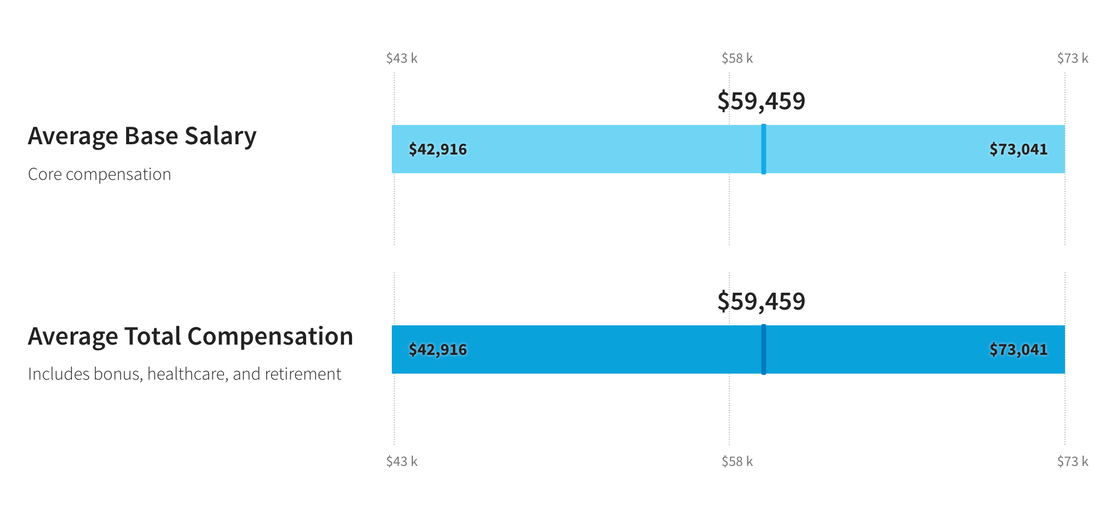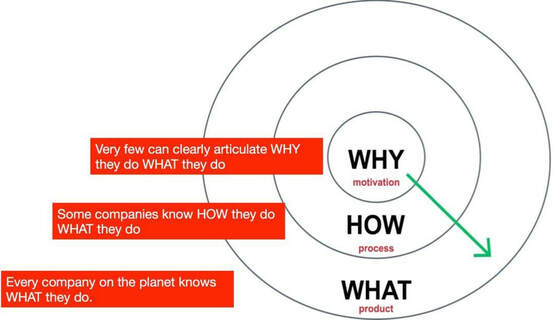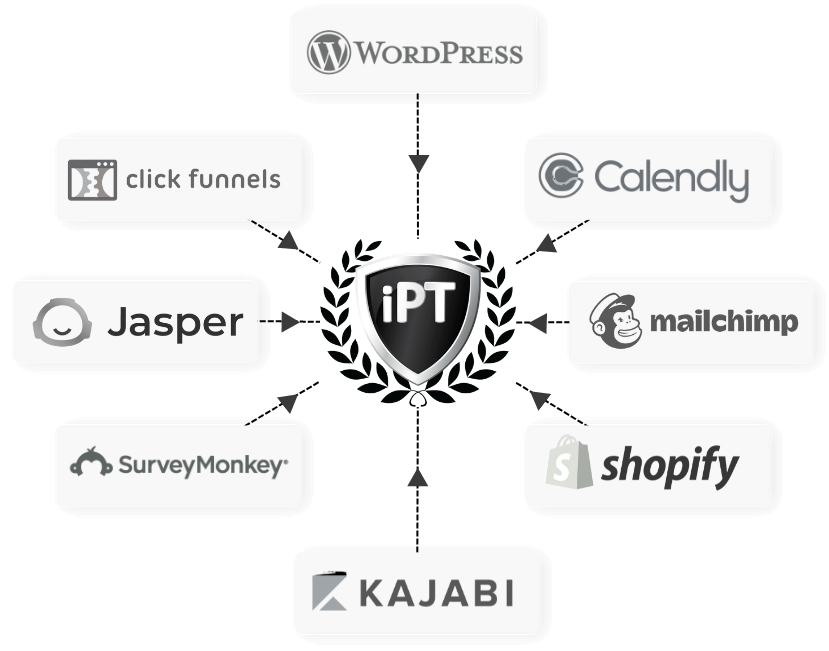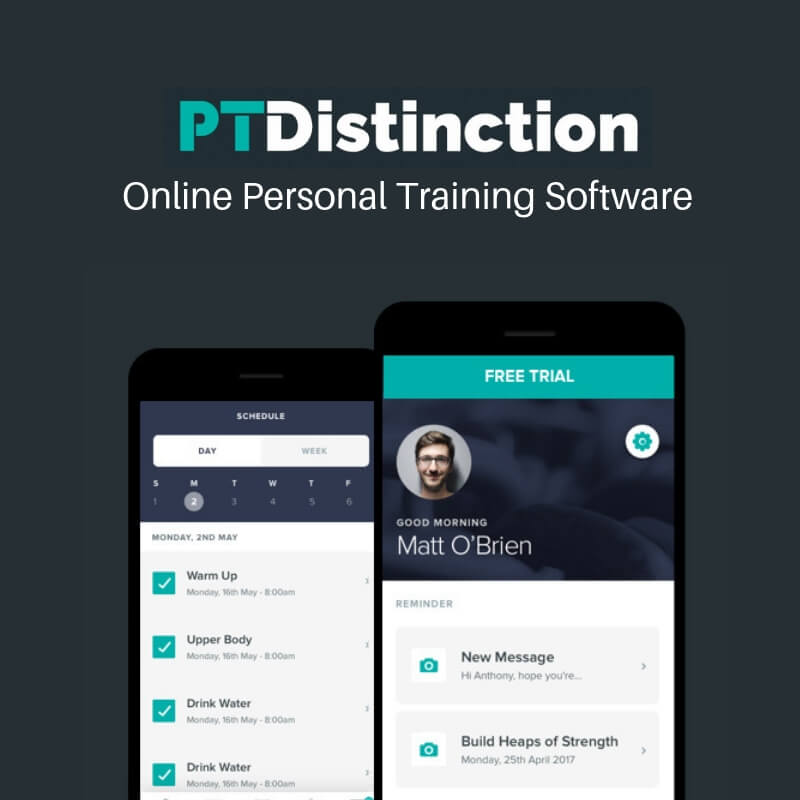Learn More About Becoming a Personal Trainer
What You'll Learn
Learn what it takes to become a personal trainer in a thriving industry. Understand the physical, psychological and emotional demands of working with an extensive client base.
Why it's Important
Aside from the Institute of Personal Trainer Code of Ethical Conduct, the fitness industry is widely unregulated. But personal training is a profession nonetheless and should be seen that way should you choose to join the industry.
Table of Contents:
Learn what it takes to become a personal trainer in a thriving industry. Understand the physical, psychological and emotional demands of working with an extensive client base.
Why it's Important
Aside from the Institute of Personal Trainer Code of Ethical Conduct, the fitness industry is widely unregulated. But personal training is a profession nonetheless and should be seen that way should you choose to join the industry.
Table of Contents:
Pros and Cons of Being a Personal Trainer
Before embarking on your new career to become one of the best personal trainers in the world, let’s weigh up some of the pros and cons of becoming a personal trainer, so you can decide if it’s for you.
Our top 3 pros for becoming a personal trainer include:
3 of the main cons of becoming a personal trainer include:
Should you do it?
With all that being said, we don’t want you to think the cons should put you off. We’ve created this guide to help you overcome some of them. Read on to find out the 7 steps to becoming a personal trainer.
Our top 3 pros for becoming a personal trainer include:
- Rewarding Work
When you successfully help a client improve their health and fitness, you can often witness a full transformation of character. It’s hard to believe it when you’re just starting out, but even your clients will become amazed at what they achieve. - Flexibility
Once you have established a client base, you can more or less choose your hours, days off and holidays. Some trainers work early mornings and early afternoons, and others choose to work late afternoons to evenings. The beauty of it, is that you choose! - High Earning Potential
There is an excellent earning potential for driven personal trainers. Dependant on your location, it’s not uncommon for trainers to charge up to $100 (£70.00) per hour. This can be even more if you choose to do semi-private or boot-camp styled sessions.
3 of the main cons of becoming a personal trainer include:
- Steep learning curve
Personal training isn’t a matter of having knowledge of just training and nutrition - you really have to become a good businessperson, coach, and salesperson as well. - Uncertain income
If you take the freelance personal trainer option, there is no guarantee of income. It comes down to your ability to sell your services and retain your clients. - Draining Work
Doing back-to-back sessions sounds easy, but the reality is that the work is mentally and physically draining.
Should you do it?
With all that being said, we don’t want you to think the cons should put you off. We’ve created this guide to help you overcome some of them. Read on to find out the 7 steps to becoming a personal trainer.
Personal Trainer Salary
To many, becoming a personal trainer is a dream career, filled with prestige, flexibility and job satisfaction. You’re helping people, every day, to optimise their health and fitness and improve the quality of their lives.
Sounds great, right? Well, it really is!
Becoming a personal trainer is a highly appealing profession to a number of people. Many individuals who enjoy working with people, remaining physically fit and helping people change their lives for the better will pursue this profession. Not to mention you can make a pretty good personal trainer salary!
Sounds great, right? Well, it really is!
Becoming a personal trainer is a highly appealing profession to a number of people. Many individuals who enjoy working with people, remaining physically fit and helping people change their lives for the better will pursue this profession. Not to mention you can make a pretty good personal trainer salary!
However, this does not necessarily mean it is an easy career path to follow.
A personal trainer’s job is far more demanding than simply hanging out at the gym all day people watching and telling others what to do. The psychological and physical demands of personal training weed out many newcomers to the profession within the first year.
In this lesson, we’re going to start by looking at some of the pros and cons of becoming a personal trainer. If you still decide it’s for you, keep reading, because we then lay out 7 steps on how you can become one.
LEARN MORE: PERSONAL TRAINER SALARY
How Much Do Personal Trainers Make?
Personal trainers earn according to their coaching abilities and professional reputation. As a starting salary, a personal trainer can expect to earn around £15,000 per year, depending on the framework of the business. Any personal trainers work in gyms and have some fees to pay.
On the upper end of the pay scale, personal trainers can earn as much as £84,000 per year. At this level, a personal trainer will be charging around £70 per hour, earning a weekly income of £1750 and a yearly income of £84,000. Most sit somewhere in the middle of the pay scale.
On the upper end of the pay scale, personal trainers can earn as much as £84,000 per year. At this level, a personal trainer will be charging around £70 per hour, earning a weekly income of £1750 and a yearly income of £84,000. Most sit somewhere in the middle of the pay scale.
Do You Need to Be Fit to Become a Personal Trainer?
While you don’t have to be super-fit to be a personal trainer, you do need to have enough strength and endurance to demonstrate the exercises you repeatedly teach throughout the day. Additionally, a fit PT instills confidence in the clients and demonstrates what can be achieved.
If you’re thinking about becoming a personal trainer, chances are you are already reasonably fit. Even so, consider if you have the endurance to demonstrate your workouts effectively throughout the working day. Understand that your personal fitness is also a form of promotion.
If you’re thinking about becoming a personal trainer, chances are you are already reasonably fit. Even so, consider if you have the endurance to demonstrate your workouts effectively throughout the working day. Understand that your personal fitness is also a form of promotion.
Personal Training For the Right Reasons
The popular business book by Simon Sinek called “Start With Why: How Great Leaders Inspire Everyone To Take Action” encourages business owners to approach their business by answering the big question - “why?”
You’ll be putting some long hours in at the beginning, so having a “why” will help to keep you motivated.
Not only will it keep you motivated, but it will also make it much easier to sell your service to potential clients.
For many personal trainers, fitness changed their lives in such drastic ways that the natural next step was for them to inspire and coach others on making similar changes.
Once you’ve figured out your “why”, you can then figure out the “what” and the “how”. However, as Simon says, it all starts with “why”.
On the surface, personal training looks like the best job in the world for anyone interested in health and fitness.
You get to work in a gym, train when you like and talk fitness all day with your peers and clients.
While this isn't completely untrue, there are a lot more facets to becoming a personal trainer that most people thinking about joining the industry overlook.
Is Personal Training a Good Career?
The short answer is yes! But only if you feel you are suited to the ethics and independence of the role. Becoming a personal trainer is an excellent way to combine your fitness practice and your livelihood; the good news is that many fitness enthusiasts also have an independent mind.
This is something you’ll need for the role because a personal trainer needs to operate as a small independent business - you will have to find your clients and submit your taxes - however, these are excellent qualities that can lead to enhanced personal and professional development.
A career as a personal trainer is excellent for individuals who are active in the gym and have good customer service skills. However, even if you don’t have excellent customer service abilities, you can still build a career as a PT. Certification can also be earned for many soft skills.
This is something you’ll need for the role because a personal trainer needs to operate as a small independent business - you will have to find your clients and submit your taxes - however, these are excellent qualities that can lead to enhanced personal and professional development.
A career as a personal trainer is excellent for individuals who are active in the gym and have good customer service skills. However, even if you don’t have excellent customer service abilities, you can still build a career as a PT. Certification can also be earned for many soft skills.
What it Takes to be a Personal Trainer
While it might seem as though becoming a personal trainer would be the dream job. It comes with its demands that are often overlooked before starting your career.
The Physical Demands
The physical demands of personal training can be challenging for some individuals. You might be in great shape, but you may still grow tired of the constant work required to stay in shape after a few years. Check out this video Frank Torres on his day as a trainer...
The Physical Demands
The physical demands of personal training can be challenging for some individuals. You might be in great shape, but you may still grow tired of the constant work required to stay in shape after a few years. Check out this video Frank Torres on his day as a trainer...
You might also experience personal injury from overexertion if you are not careful. You will often have to demonstrate exercises or do them alongside your client to keep them motivated. Pushing yourself too hard in one day with multiple clients will take its toll on your body if you are not monitoring your own activities.
Scheduled rest and proper nutrition (the same thing you advice your clients) is essential.
The Psychological Demands
The psychological demands of personal trainers are often too much for beginners to the industry; in fact, between the psychological and physical demands of the industry, most people change professions within six months to a year.
One of the great psychological challenges to overcome is the limited and potentially sporadic client base. It often takes years to develop a loyal client base and many people are not prepared for the uncertainty and commitment involved with building clients over time. If you are a good trainer who works hard and chooses a niche, you will grow your client base organically over time – but you must be patient in the meantime.
Getting Qualified
Before you can become a personal trainer and start changing lives and influencing people, there are a few pieces of paper you’ll need to obtain:
LEARN MORE: THE BEST PERSONAL TRAINING INSURANCE IN THE UK
LEARN MORE: THE BEST PERSONAL TRAINING INSURANCE IN THE USA
LEARN MORE: THE BEST PERSONAL TRAINING INSURANCE IN THE AUSTRALIA
LEARN MORE: THE BEST PERSONAL TRAINING INSURANCE IN THE CANADA
- Level 2 Gym Instructor qualification - this is a pre-requisite to the Level 3 PT qualification
- Level 3 Personal Trainer qualification - although University graduates with an appropriate honours degree can also advertise and market themselves as qualified personal trainers without the level 3 via a governing body like the Register of Exercise Professionals
- First aid certificate - this will depend on your employer if you decide to go the employed route
- Insurance - essential if you're self employed but likely provided for you if employed.
LEARN MORE: THE BEST PERSONAL TRAINING INSURANCE IN THE UK
LEARN MORE: THE BEST PERSONAL TRAINING INSURANCE IN THE USA
LEARN MORE: THE BEST PERSONAL TRAINING INSURANCE IN THE AUSTRALIA
LEARN MORE: THE BEST PERSONAL TRAINING INSURANCE IN THE CANADA
Can You Be a Personal Trainer Without Qualifications?
This question is searched frequently on the internet; people hope to find information telling them it’s fine to operate as a personal trainer without having completed a training course - after all, they have enough experience! However, it is risky to set up a business without qualifications.
Unless you want to risk health and safety issues along with possible litigation, you will acquire a Level 3 Personal training certificate that qualifies you to teach in the industry. Without a level 3 certificate, you can only set up in a private location; you can’t work in gyms and centers.
Unless you want to risk health and safety issues along with possible litigation, you will acquire a Level 3 Personal training certificate that qualifies you to teach in the industry. Without a level 3 certificate, you can only set up in a private location; you can’t work in gyms and centers.
What Qualifications Do You Need to Become a Personal Trainer?
The main qualification you need to become a personal trainer in the UK is the Level 3 personal training diploma accredited by CIMSPA. This accreditation meets the minimal standards of the accrediting body, permitting you to operate in the industry in a self-employed way.
While the CIMSPA certification is the qualification you need to operate as a personal trainer, there are some supporting qualifications that will be useful and can support higher earnings. These include CPD courses like the L3 Pre and Postnatal courses, L4 Obesity or qualifications in training special populations like the elderly.
While the CIMSPA certification is the qualification you need to operate as a personal trainer, there are some supporting qualifications that will be useful and can support higher earnings. These include CPD courses like the L3 Pre and Postnatal courses, L4 Obesity or qualifications in training special populations like the elderly.
What Is The Best Personal Trainer Certification?
Naturally, you want to know what the best training certificate is, so you can invest your money efficiently. There are many CIMSPA accredited ones to choose from. According to the latest reviews, Premier Global NASM is number one, but there could be others that suit you better.
Some other accredited certifications include OriGym, FutureFit, HFE, and Diverse Trainers. Although each of these training certificates qualifies participants as personal trainers, they each have different qualities and processes. You can view their course preview for more information.
Some other accredited certifications include OriGym, FutureFit, HFE, and Diverse Trainers. Although each of these training certificates qualifies participants as personal trainers, they each have different qualities and processes. You can view their course preview for more information.
What Is The Hardest Personal Trainer Certification?
When it comes to qualifying as a personal trainer in the UK, what you need is a level 3 CIMPSPA certificate, but a level 4 certificate is more advanced and teaches additional knowledge of anatomy and physiology. This certificate level is considered harder than level 3.
Likewise, the level 2 fitness instructor certification is less difficult than the level 3 personal training certificate; it also doesn’t fully qualify someone as a personal trainer. Each of these levels is generally taught through third-party training providers that you can find online.
Likewise, the level 2 fitness instructor certification is less difficult than the level 3 personal training certificate; it also doesn’t fully qualify someone as a personal trainer. Each of these levels is generally taught through third-party training providers that you can find online.
How Long Does It Take to Qualify as a Personal Trainer?
Personal training programs are diverse; some of them take place of a term of weeks that qualifies you as personal training at the end; others offer a remote solution that allows you to learn at your own pace. In most cases, personal trainers are qualified in under one year.
When you attend a personal training certification course, you learn about physiology, nutrition, and client-centered training principles. Most courses, even the mostly remote ones include in-person practical and assessment days. You will need to produce a course-work to demonstrate that you understand the principles and how to apply them to an example client. You'll also need to sit written exams on each module and participate in practical assessment of your coaching skills. Once you passed all of those requirements, you'll receive your qualification.
When you attend a personal training certification course, you learn about physiology, nutrition, and client-centered training principles. Most courses, even the mostly remote ones include in-person practical and assessment days. You will need to produce a course-work to demonstrate that you understand the principles and how to apply them to an example client. You'll also need to sit written exams on each module and participate in practical assessment of your coaching skills. Once you passed all of those requirements, you'll receive your qualification.
Becoming a Fitness Business Owner
Some trainers opt to get a personal trainer job within fitness facility or gym. Other trainer pursue their dream of building a fitness business.
Once you become a personal trainer you tend to think of yourself as just that, a trainer. But in actual fact, you're not a trainer. Personal training is a service and you are a business owner.
One of the biggest hurdles for new fitness professionals is learning this and that's why we built the Institute of Personal Trainers. To help new trainers get better at business using our 8 step model.
Once you become a personal trainer you tend to think of yourself as just that, a trainer. But in actual fact, you're not a trainer. Personal training is a service and you are a business owner.
One of the biggest hurdles for new fitness professionals is learning this and that's why we built the Institute of Personal Trainers. To help new trainers get better at business using our 8 step model.
We use this 8 pronged approach to building a successful personal training business because it covers every aspect of what makes all businesses successful. With it, you'll learn all about the business mindset, branding, money and finances, systems, sales, marketing, management and essential skills.
Creating a Personal Trainer Business Plan
Naturally, the first step to creating a successful fitness business is to create a business plan. A business plan will act as the roadmap from which you'll make some of the fundamental decisions to move your business forward.
A good business plan will help you to explore the competition, decide on a brand, set your rates, build yuor packages and choose a niche.
LEARN MORE: PERSONAL TRAINER BUSINESS PLAN
LEARN MORE: BUILD YOUR ONLINE PERSONAL TRAINING PACKAGES
LEARN MORE: HOW TO SET YOUR PERSONAL TRAINING RATES
A good business plan will help you to explore the competition, decide on a brand, set your rates, build yuor packages and choose a niche.
LEARN MORE: PERSONAL TRAINER BUSINESS PLAN
LEARN MORE: BUILD YOUR ONLINE PERSONAL TRAINING PACKAGES
LEARN MORE: HOW TO SET YOUR PERSONAL TRAINING RATES
Career Progression Options
It's exciting to think about your new venture as a personal trainer as the final stepping stone to your dream life. But being a personal trainer isn't always the end of the road.
You'll find yourself moving away from the typical gym setting into other areas that often require higher levels of expertise, an increased salary and give you an improved quality of life. Some of those career progressions include:
- High end coaching - You might want to take your experience or system and turn it into a high end coaching service that caters to high level individuals.
- Management - If you become tired of the gym floor then management may be for you. The best fitness club managers are often the ones that worked their way up.
- Business ownership - A big step that a lot of trainers take. Buying a gym and hiring a team is no small feat but often worth it for the highly motivated trainers.
- Clinical work - This involves taking your qualifications to another level and venturing out in to further education to become a therapist, clinician or advanced sports trainer.
- Consulting - If you've put your hours in and you find you're great at business, why not share your expertise with other novice personal trainers?
LEARN MORE: 5 CAREER PROGRESSION OPTIONS FOR PERSONAL TRAINERS
How Do You Start a Career as a Trainer Once Qualified?
Once qualified, there are many ways to kick-start your career as a personal trainer. Many PTs start their careers in their local gyms; you can apply to a gym as a PT and pay their rates to train on the machines - however, you will still operate independently as a self-employed person.
However, there are some other ways into a professional career as a personal trainer. Health clubs and spas also have personal trainers available for their customers, or you could set up independently from your home and build a website displaying your qualifications and services.
There are different situations for personal trainers, each with advantages and disadvantages. If you have space in your home, you can earn better because you don’t have fees to pay; the downside is that you don’t have access to the machines, you might also miss out on promoting.
However, there are some other ways into a professional career as a personal trainer. Health clubs and spas also have personal trainers available for their customers, or you could set up independently from your home and build a website displaying your qualifications and services.
There are different situations for personal trainers, each with advantages and disadvantages. If you have space in your home, you can earn better because you don’t have fees to pay; the downside is that you don’t have access to the machines, you might also miss out on promoting.
Should You Become a Personal Trainer?
Personal training can be an extremely rewarding career. Don’t rush the decision – it’s a big commitment but if you take the decision seriously, commit to lifelong self-improvement and genuinely care about helping others, you will find solemn in being a personal trainer.
Clearly, the field of personal training is not for everyone, but individuals who are able to cope with the psychological and physical demands of the personal trainer industry can be highly successful.
Those who succeed as personal trainers will have a positive energy, a drive to learn new things, an understanding of their limitations, suitable specializations and a work ethic to build and maintain their client base. Only you can decide whether you should become a personal trainer; but if these qualities describe you, you could very well make an excellent one.











